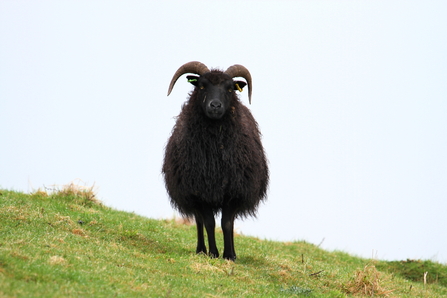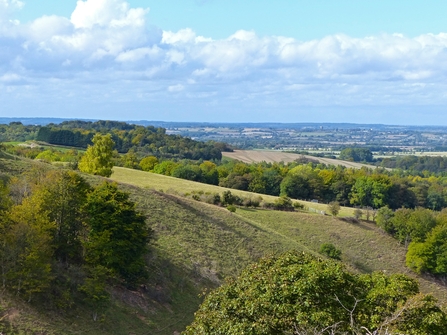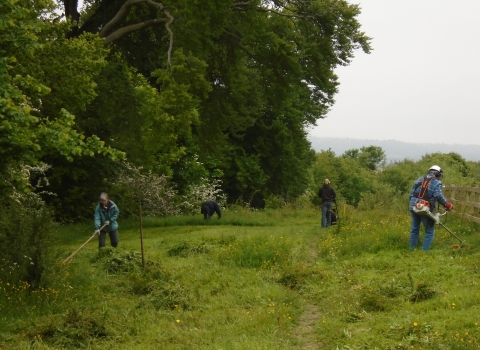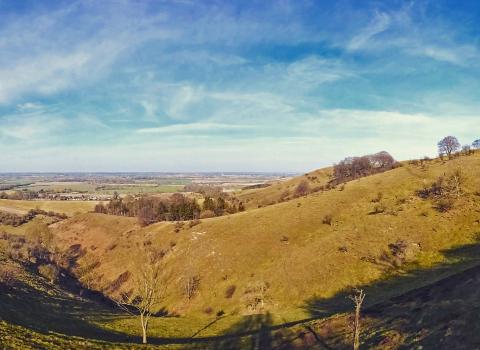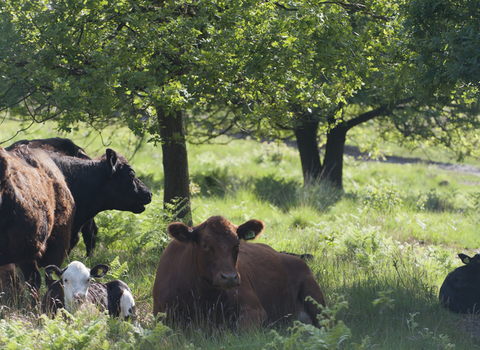Sheep are vital to many nature reserves, including Pegsdon Hills and Knocking Hoe NNR, nibbling grass and scrub, allowing space for wildflowers to bloom, but they can be wily and need a watchful eye to keep them safe, healthy and in the right places. Enter the Sheep Nuts, three determined livestock volunteers keeping our flock on the straight and narrow. Local Wildlife talked to them in January.
The self-named Sheep Nuts are three of our current five regular livestock checkers, each putting in a weekly circuit of around three hours at Beds' Pegsdon Hills, Knocking Hoe NNR and sometimes Herts WT’s nearby Hexton Chalk Pit. Quite a commitment, but they don’t seem to look on it that way - for Helen Gebler, a semi-retired former civil engineer, 15 years into her role, livestock checking is just one of her voluntary activities, along with helping with Girl Guiding and her local village hall committee. Jane Harrison, an ex-physiotherapist, was looking for a new commitment on retiring six years ago and a Google search came up trumps, while Fiona Hutton, a retired HR manager, admits to having a love affair with Pegsdon for over 40 years and has been volunteering there for eight years.


